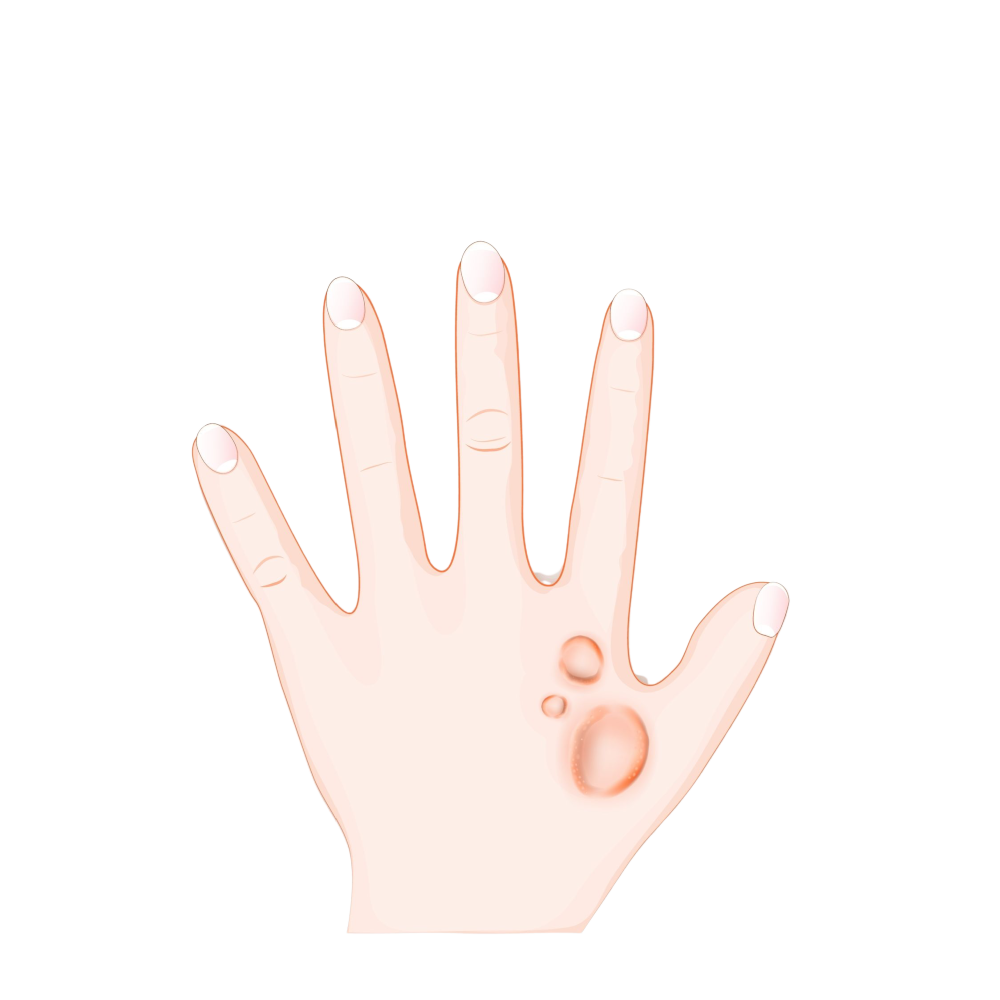Granuloma annulare (GA) is a very common skin condition. However, patients struggle to find effective treatments. We understand the frustration of dealing with GA. At the Trillium Clinic, our solutions are designed to address granuloma annulare at its cause, helping your skin heal and giving you the clear, healthy skin you desire. Begin your advanced granuloma annulare treatments today.
What is Granuloma Annulare?

The characteristic appearance of granuloma annulare is the formation of smooth, firm bumps arranged in a ring or circular shape. These bumps may be slightly elevated and can range in size from a few millimeters to a few centimeters in diameter. They are most commonly found on the hands, feet, elbows, or knees, but can occur on other parts of the body as well. Granuloma annulare is generally not itchy or painful, and most people do not experience any associated symptoms. However, in some cases, there may be mild itching or tenderness in the affected areas. There are different types of granuloma annulare, including localized, generalized, perforating, and subcutaneous. Localized granuloma annulare is the most common type, typically appearing as one or a few rings on the skin. Generalized granuloma annulare involves multiple rings scattered throughout the body. Perforating granuloma annulare is characterized by the formation of central depressions or “pits” within the rings. Subcutaneous granuloma annulare affects the deeper layers of the skin and often presents as painless nodules.
What Causes Granuloma Annulare?
The exact cause of granuloma annulare is unknown. It is believed to be related to an abnormal immune response, although the triggers or underlying factors that lead to its development are not well understood. It is not contagious and is not caused by an infection. It is often seen in the setting of thyroid disease.
How is Granuloma Annulare treated
In most cases, granuloma annulare does not require treatment, as it tends to resolve on its own over time. However, treatment may be considered for cosmetic reasons or if the lesions are persistent or causing discomfort. Options for treatment may include topical corticosteroids, steroid injections, cryotherapy (freezing the lesions), or light therapy. In rare cases, oral medications or immune-modulating drugs may be prescribed for more severe or widespread forms of the condition.
Embark on your journey to radiant skin
For patients in Chapel Hill, Carrboro, Hillsborough, Pittsboro, Mebane, Durham, Burlington, Cary, and surrounding cities, who suffer from granuloma annulare, we invite you to schedule an appointment with us here. A member of our dermatology team will conduct a comprehensive evaluation of your granuloma annulare and then, together, we will explore the various options so that we find the psoriasis treatment best suited for your specific situation.

